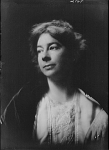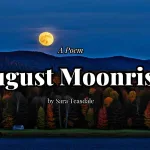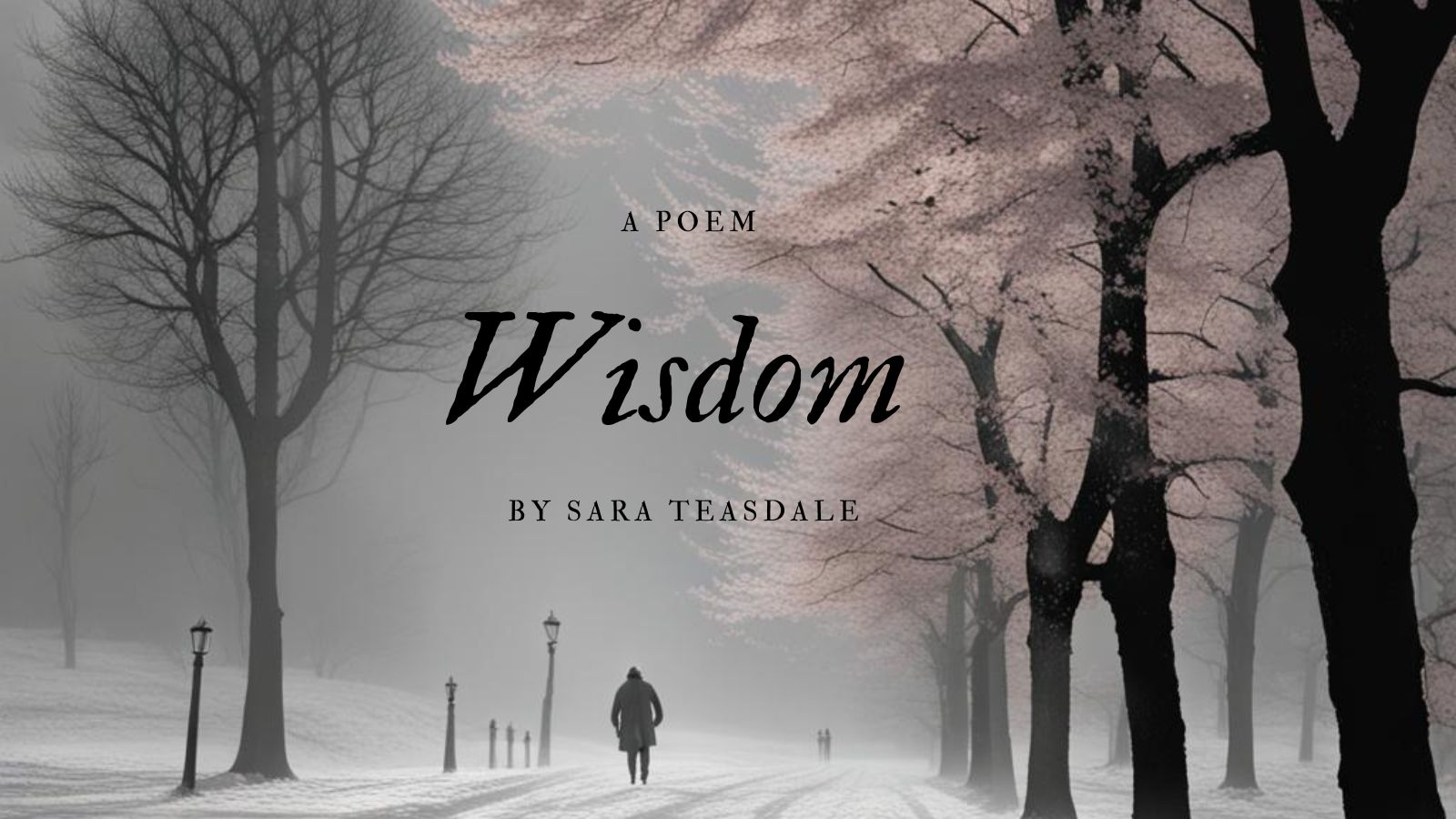The New Moon
by Sara Teasdale
Day, you have bruised and beaten me,
As rain beats down the bright, proud sea,
Beaten my body, bruised my soul,
Left me nothing lovely or whole—
Yet I have wrested a gift from you,
Day that dies in dusky blue:
For suddenly over the factories
I saw a moon in the cloudy seas—
A wisp of beauty all alone
In a world as hard and gray as stone—
Oh who could be bitter and want to die
When a maiden moon wakes up in the sky?
Sara Teasdale (August 8, 1884 – January 29, 1933) was an American lyric poet known for her passionate and highly personal poetry. Born in St. Louis, Missouri, Teasdale was the youngest child of a wealthy family. She was homeschooled until the age of 10 and later attended Mary Institute, a private school for girls.
Teasdale began writing poetry at a young age and published her first poem in 1907 in Reedy’s Mirror, a local newspaper. Her first collection of poems, “Sonnets to Duse and Other Poems,” was published in 1907, and her second collection, “Helen of Troy and Other Poems,” followed in 1911.
In 1914, Teasdale married Ernst Filsinger, a businessman, and moved to New York City. She continued to write and publish poetry, and her third collection, “Rivers to the Sea,” was published in 1915. This collection included some of her most famous poems, such as “I Shall Not Care” and “The Lamp.”
Teasdale’s poetry was characterized by its lyrical beauty, emotional intensity, and themes of love, heartbreak, and the natural world. She was influenced by the Romantic poets, particularly John Keats, and her work often explored the intricacies of human emotions and relationships.
Throughout her career, Teasdale received numerous awards and accolades for her poetry, including the Columbia University Poetry Society prize, the Poetry Society of America prize, and the Pulitzer Prize for Poetry in 1918 for her collection “Love Songs.”
Despite her success, Teasdale struggled with depression and poor health throughout her life. She divorced Filsinger in 1929 and moved back to St. Louis. On January 29, 1933, at the age of 48, Teasdale took her own life by overdosing on sleeping pills.
Sara Teasdale’s legacy lives on through her poetry, which continues to be widely read and admired for its beauty, emotional depth, and universal themes. Her work has influenced countless poets and has secured her place as one of the most important American poets of the early 20th century.














I love Sara T so much. Here work is amazing.